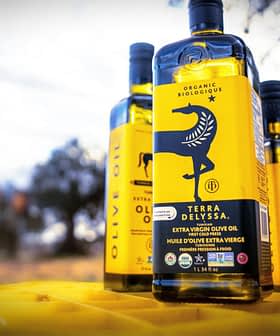Trump Health Secretary Pick Elevates Seed Oil Controversy to U.S. Cabinet
Robert F. Kennedy Jr. has long railed against seed oils. If confirmed as the Secretary of Health and Human Services, he will be in a position to regulate the industry.
President-elect Donald J. Trump has chosen Robert F. Kennedy, Jr. to lead the Department of Health and Human Services, giving him authority over the U.S. Food and Drug Administration if confirmed by the Senate, despite Kennedy’s anti-vaccine views and criticism of seed oils. Kennedy recommends replacing seed oils with beef tallow and criticizes their health impacts, but researchers argue that plant oils are a healthier alternative due to their unsaturated fat content and that other ingredients in ultra-processed foods, not seed oils, are primarily responsible for negative health impacts.
Robert F. Kennedy, Jr., the scion of one the most well-known political families in the United States, has been tapped by President-elect Donald J. Trump to lead the Department of Health and Human Services.
If confirmed by a Republican-led Senate, Kennedy would have wide-ranging authority over the U.S. Food and Drug Administration (FDA), which regulates about 80 percent of the country’s food supply.
While he is widely known for his anti-vaccine views, Kennedy is also a prominent and vocal critic of seed oils, bringing a long-simmering debate about their health impacts into the mainstream.
See Also:Health NewsIn an August interview with Fox News, Kennedy called seed oils “one of the most unhealthy ingredients” found in food and said they are “one of the worst things you can eat” since they are associated with “body-wide inflammation.”
Instead, Kennedy recommends replacing seed oils with beef tallow, made from the fatty tissue of cow organs. Searching Kennedy’s historical public statements and social media accounts found no mention of olive oil.
Researchers, including scientific members of the American Heart Association, have long argued that plant oils – mostly derived from seeds, especially canola, sunflower and soybean – are a healthier alternative to animal fat due to their unsaturated fat content.
“Very consistently, all the data say butter and lard are bad for our hearts,” said Christopher Gardner, a professor of medicine at Stanford University. “Studies show swapping out saturated fats and replacing them with unsaturated fats lowers the risk for heart disease.”
While Kennedy is among the most prominent critics of seed oils, there is a growing anti-seed oil influencer movement on social media.
Seed oil critics articulate two main arguments. The first is that seed oils are often contaminated by hexane, the chemical solvent used in most commercial seed oil production.
Hexane is known to be toxic to humans in gaseous form but is used as a liquid in seed oil production. The hexane evaporates during the heat treatment that seed oils undergo when refined.
However, the FDA does not regulate or monitor hexane residues in seed oils, so it is unclear whether or not trace amounts of hexane remain in commercially available seed oils.
The more common argument against seed oils is their high content of omega‑6 polyunsaturated fatty acids, especially linoleic acid, compared to olive oil and animal-derived fats.
Linoleic acid content is about 55 percent in soybean oil, nearly 70 percent in sunflower oil (less than five percent in high-oleic sunflower oil) and more than 20 percent in canola oil. By contrast, olive oil comprises 2.5 to 21 percent linoleic acid, while beef has about one percent linoleic acid content.
Seed oil critics argue that omega‑6 fatty acids are converted into inflammation-promoting arachidonic acids in the body. Indeed, arachidonic acid is widely acknowledged as a building block for compounds that cause inflammation, but it has also been shown to suppress pro-inflammatory compounds.
According to a 2017 meta-analysis of 30 randomized control studies involving 1,377 subjects published, linoleic acid had a minimal impact on blood concentrations of inflammatory markers. The researchers attributed this to the fact that only 0.2 percent of linoleic acid is converted into arachidonic acid.
While it is widely acknowledged that humans need dietary sources of omega‑3 and omega‑6 fatty acids to survive, seed oil critics argue that modern Western diets include too many omega‑6 fatty acids and too few omega‑3 fatty acids.
Indeed, the recommended omega-6-to-omega‑3 ratio is four to one. However, some researchers estimate that these proportions range from ten to one to thirty to one in the U.S.
Seed oil critics also frequently highlight the correlation between seed oil consumption in the U.S. and rising obesity, cardiovascular disease and diabetes as evidence of their negative health impact.
However, correlation is not the same as causation. Instead, some experts argue that rising seed oil consumption is directly linked to the dramatic increase in ultra-processed foods, which include seed oils as an ingredient and are widely viewed as responsible for the aforementioned chronic diseases.
Gardner further argued that ultra-processed foods are unhealthy primarily because of other ingredients, including high-fructose corn syrup, added sugar and sodium. “It’s hard to cast the blame on the seed oils when these foods contain so many other things,” he said.
Kennedy has also strongly opposed ultra-processed foods and has said he would prohibit their use in school lunches. However, the FDA has no formal definition for ultra-processed food, which would make any ban difficult to implement.
Share this article







